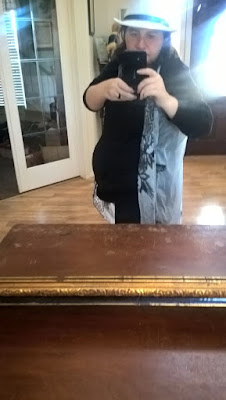We don't talk about them
My Tejano Hubby always says "oh Arizona, we don't talk about Arizona." because of what they did but here is just a few more examples of how Arizona has Fucked up again. and just between you and me Hee hee hee (not really) but Arizona makes me mad for their IDIOTC! ways. It also makes me very sad that their are actually people in this world that feel that other Races are inferior and not equal to every one else ( a tail as old as Time I know but still this has always sadden me)
7 Mexican-American studies books band in Arizona!
1:Occupied America: A History of Chicanos, by Rodolfo Acuña
The most successful book written by professor Rodolfo Acuña, "Occupied America" represents all that Arizona Attorney General Tom Horne opposed in the Mexican-American Studies program when he launched the attack against it. Horne viewed the curriculum as separatist and ethnically divisive. HB 2281, the law used to ban TUSD's Mexican American Studies program, prohibits courses that "promote the overthrow of the United States government" or "are designed primarily for pupils of a particular ethnic group."
"These people think you're a separatist if you want to teach and include people," Acuña told the Los Angeles Times in 2011. "I don't want to be part of Mexico ... That's a stupid thing to argue."
2: 500 Years of Chicano History in Pictures, compiled by Elizabeth Martinez
7 Mexican-American studies books band in Arizona!
1:Occupied America: A History of Chicanos, by Rodolfo Acuña
The most successful book written by professor Rodolfo Acuña, "Occupied America" represents all that Arizona Attorney General Tom Horne opposed in the Mexican-American Studies program when he launched the attack against it. Horne viewed the curriculum as separatist and ethnically divisive. HB 2281, the law used to ban TUSD's Mexican American Studies program, prohibits courses that "promote the overthrow of the United States government" or "are designed primarily for pupils of a particular ethnic group."
"These people think you're a separatist if you want to teach and include people," Acuña told the Los Angeles Times in 2011. "I don't want to be part of Mexico ... That's a stupid thing to argue."
2: 500 Years of Chicano History in Pictures, compiled by Elizabeth Martinez
This compilation tells the story of Chicano history from before the European conquest of N
#orth America, through colonization and into the present day. The book describes the Southwest as "Occupied America" -- a term that Arizona conservatives often view as unjust and disparaging. Actor Edward James Olmos felt differently: "If young people read this book, they will be strong and proud in new ways," he said on the dust jacket to the 1990 edition. "It's a real education, in the true sense of that word."
3:Pedagogy of the Oppressed, by Paulo Freire
This seminal work by Brazilian education professor Paulo Freire argued that students learn best when treated as equals and engaged on their own terms. Freire argues against the "banking model" of education, in which teachers treat students as passive recipients of knowledge. His work is studied by education specialists throughout the hemisphere. In a 2012 interview, Arizona Superintendent of Education John Huppenthal explained why he viewed the book as problematic: The title of Paulo Freire's book is 'Pedagogy of the Oppressed,' and so the question is, who is the oppressed? And as we looked at what was going on in the classroom and looked at what was in the materials, we saw they were putting together a Marxian model in the classroom in which the oppressed are the Hispanic students and the oppressors are the white Caucasian power structure. We came to the conclusion that it wasn't O.K. to be preaching that model in the classroom.
4:Rethinking Columbus: The Next 500 Years, by Bill Bigelow
A collection of essays, interviews, lesson plans and other materials, Rethinking Columbus aims to change the way students understand the first interactions between the indigenous peoples of the Americas and the Europeans. One contributing author, Tucson's own Leslie Silko, boasts a Native Writers' Circle of the Americas Lifetime Achievement Award and a MacArthur Foundation genius grant.
5: Critical Race Theory, by Richard Delgado
The academic field of critical race theory challenges traditional ways of looking at race and racism. The field's theoreticians argue that supposedly neutral concepts and institutions, like meritocracy or the legal system, mask systemic inequality and institutionalized racism. Richard Delgado's books is one of the discipline's classics. Some conservatives view critical race theory as "dangerous" because some of its proponents view the Constitution and the fabric of American democracy as imbued with racism. During the course of several interviews in 2012, Julio Cammarota, a professor of Mexican American Studies at the University of Arizona, "You can see the problem, can't you? One side doesn't want to talk about race, the other side wants to talk about race all the time."
6:Message to Aztlán: Selected Writings of Rodolfo "Corky" Gonzalez
The term "Aztlán" refers to the mythic homeland of the Nahua of Central Mexico. Intellectuals of the Chicano movement adopted the term to describe the southwestern United States. Mexican-American Studies teachers at Tucson Unified School District taught those concepts with books like this one, by Rodolfo "Corky" Gonzalez, a writer and political activist who helped found the Chicano Movement in the 1960s.
7:Chicano! The History of the Mexican American Civil Rights Movement, by Arturo Rosales
This well-regarded study of the Chicano movement serves as a companion to the 1996 PBS documentary of the same name.








